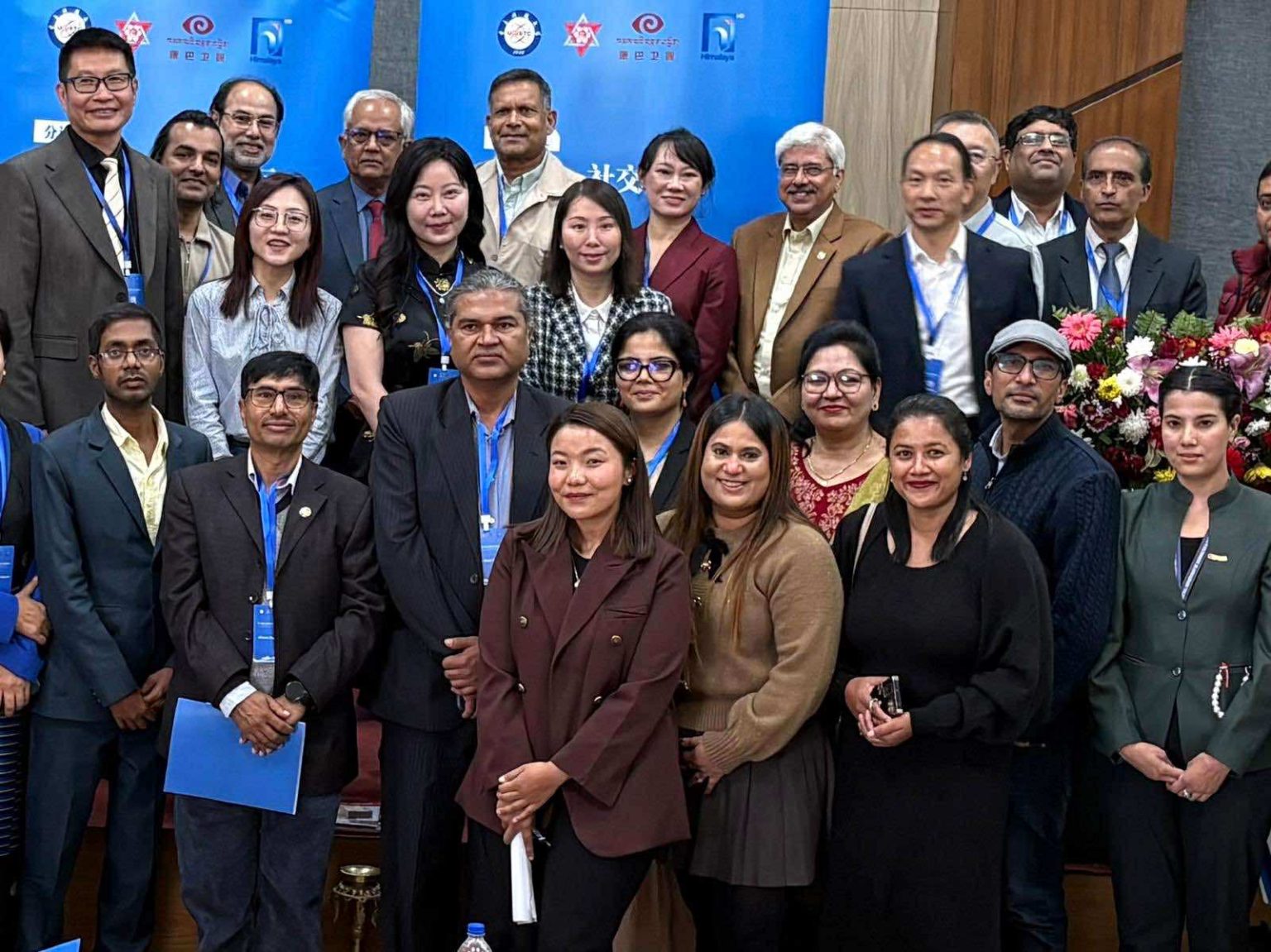Listen to the article
Trans-Himalayan Conference Calls for Enhanced Regional Communication and Cooperation
The third Trans-Himalaya Communication and Social Development Conference concluded Thursday in Kathmandu, with experts emphasizing the critical need for more comprehensive information sharing throughout the diverse and geographically challenging Himalayan region.
The two-day event, hosted at the Camera Building of the Central Department of Journalism and Mass Communication (CDJMC), brought together scholars and media professionals from nine countries to address the evolving landscape of cross-border communication.
Prof. Deepak Aryal opened the conference with a timely warning about misinformation, highlighting the essential role that trustworthy information channels play in an era of digital proliferation. In his concluding remarks, Prof. Kedar Prasad Rijal stressed that despite varying cultural contexts across the Himalayan belt, increased cooperation remains vital for addressing shared challenges.
“The Himalayan region faces unique communication challenges due to its terrain and diversity,” said a participating scholar who requested anonymity. “This conference represents a significant step toward building information networks that can transcend these barriers.”
The conference featured six comprehensive sessions, including a main forum where delegates from Bangladesh, Bhutan, India, Sri Lanka, Pakistan, China, the United States, Japan, and Nepal exchanged insights on building a cohesive future in the digital era. Discussions emphasized strengthening cross-cultural communication mechanisms that respect the region’s rich diversity while promoting cooperation.
Climate change emerged as a focal point, with participants stressing the importance of reliable information networks in promoting awareness about mitigation strategies and developing early warning systems. This topic carries particular significance for the Himalayan region, which is experiencing climate change impacts at rates faster than global averages, including accelerated glacier melt and increasing frequency of extreme weather events.
The conference also addressed growing concerns about social media ethics in an evolving communication ecosystem. Participants noted the double-edged nature of digital platforms, which have democratized information access while simultaneously creating new challenges regarding accuracy and responsible use.
Several prominent academic leaders offered their perspectives during the event, including Prof. Hu Jun, President of the University of Electronic Science and Technology of China (UESTC), and Prof. Ding Huang, Dean of UESTC’s School of Public Administration. Mr. Li Yuanjie, Deputy Chief Editor of Sichuan Radio and Television, also extended his support, reflecting the strong Chinese interest in trans-Himalayan cooperation.
Prof. Khadga KC, Rector of Tribhuvan University, contributed insights alongside international academics Prof. Han Hong, Prof. Chen Changfeng, Prof. Manukonda Rabindranath, and Prof. Taibur Rahman. Their collective expertise provided diverse perspectives on global and cross-cultural communication challenges specific to the Himalayan region.
Dr. Kundan Aryal from the CDJMC offered a cultural perspective, noting that Taoism, Buddhism, and Confucianism—despite their distinctions—have historically coexisted and influenced both Chinese and Nepali cultures over centuries, creating natural pathways for cross-cultural understanding.
Kamal Dev Bhattarai, Editor of Annapurna Express, provided practical insights on media consumption in Nepal, observing that social media use largely follows traditional patterns of new media engagement despite rapid digital adoption.
The conference represented a significant collaborative effort between China and Nepal, jointly organized by the University of Electronic Science and Technology of China and Tribhuvan University, with media partners Kangba TV (China) and Himalaya TV (Nepal).
As the Trans-Himalayan region continues to gain strategic importance in global geopolitics and faces intensifying climate challenges, initiatives like this conference highlight the growing recognition that communication networks are essential infrastructure for addressing shared regional challenges.
Fact Checker
Verify the accuracy of this article using The Disinformation Commission analysis and real-time sources.




12 Comments
This conference highlights the urgent need for reliable information in an era of digital proliferation. Enhancing regional cooperation is a step in the right direction.
I hope the recommendations from this event lead to tangible improvements in cross-border communication and information sharing in the Himalayan region.
Reliable information is indeed crucial in the fight against misinformation. Experts rightly emphasize the need for enhanced regional communication and cooperation across the diverse Himalayan region.
Sharing trustworthy data and coordinating efforts are vital to address shared challenges in this geographically complex area.
The conference highlights an important issue. Misinformation can have serious consequences, so strengthening information channels is a sensible approach.
I’m curious to learn more about the specific communication challenges faced in the Himalayan region and the solutions proposed at the event.
Kudos to the organizers for bringing together scholars and media professionals from across the Himalayan region to tackle this important issue. Strengthening information channels is a sensible approach.
I wonder how the learnings from this conference could be applied to other geographically challenging regions facing similar communication challenges.
The critical role of reliable information in fighting misinformation is well-recognized. This conference appears to be a constructive step toward enhancing communication and collaboration.
I’m interested to learn more about the specific recommendations or action plans that emerged from the discussions at this event.
This is an encouraging development. Increased regional cooperation to improve information sharing seems like a pragmatic way to combat misinformation in the Himalayas.
The diverse cultural contexts across the region make this a complex challenge, but the willingness to address it is a positive sign.